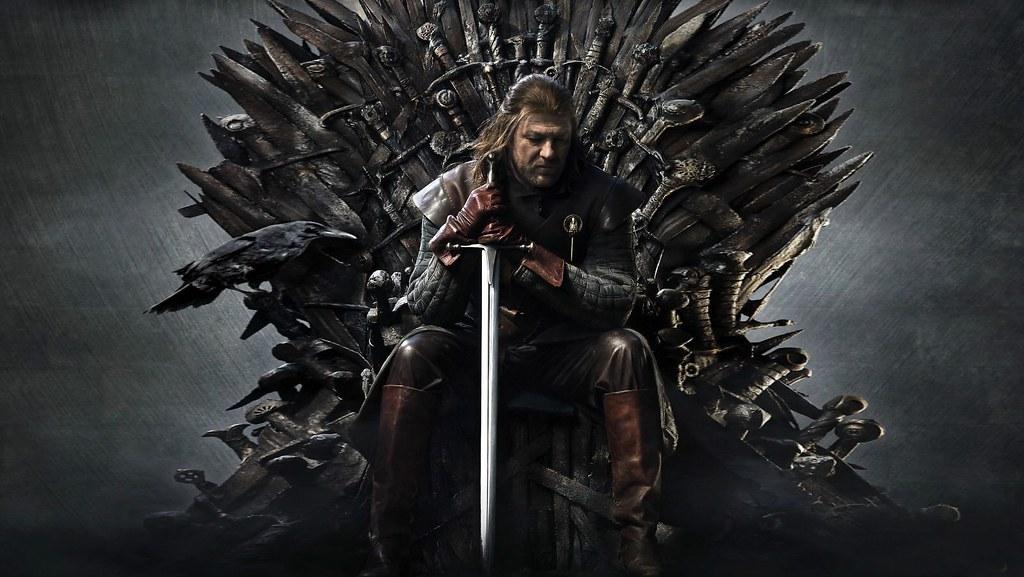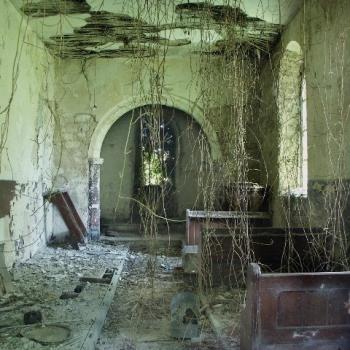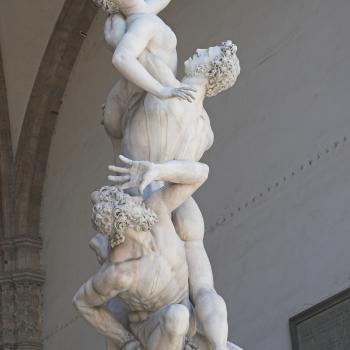SPOILERS OF COURSE
I’ve been a fan of George R.R. Martin’s monumental epic, A Song of Ice And Fire, for years now, so after a number of people I trusted told me the show version, Game of Thrones, was just as good, I started watching that, too, and quickly caught up with the seasons. While some alterations made by the showrunners were problematic – for instance, they made several sex scenes rapey, which had not been so in the book – the stunning sets, spectacular costumes, and above all the brilliant acting truly brought the story to life.
When the show began to get ahead of the book series – which is yet incomplete – I insisted on the extravagance of HBO, so we could keep up, even knowing that the plot was going to continue to bifurcate, as it has been doing for some time. Some of the changes I could appreciate for the sake of economy, and some – such as having Sansa, and not her friend Jeyne Poole (in disguise as Arya) forced into wedlock with the loathsome Ramsey – actually heightened the tension for both plot and character arc. Others, such as having Ser Jorah – instead of “Griff” – get greyscale and then be sent on a bizarre mission to get healed, seemed implausible. But I told myself, I could treat it the way I do legends from the oral tradition: there is never just one version.
Once George R.R. Martin was no longer involved in the writing, the dialogue quickly began to go downhill, but I decided not to make a fuss about this. So many talented artists were working to keep the show fabulous, it would have been very armchair-quarterback-ish for me to bitch too much. As a writer, I try not to get too persnicketty with other writers unless I am quite sure I could have done it better. And while I aspire to Martin’s level of writing, I’m not about to claim that I wouldn’t sometimes fumble his material.
When it came to plot I was a little less forgiving. There are actual plotting techniques one can learn, even if one doesn’t have the magical ability to create raw, real, poetic, and believable dialogue. There was simply no excuse for sending scouts on a mission beyond the Wall to capture a wight to convince Cersei to join their war – or for equipping two of these scouts with fire-swords but leaving the audience with the impression that there was nothing they could do to keep from dying of the cold – or, having created a ludicrous plot detour, failing to use it for much more than for “filler” dialogue that merely recapped character identities without advancing the story or introducing any new conflict.
Are fans more creative than the showrunners?
Between Season 7 and Season 8 we True Devout among GoT fans had plenty of time to occupy ourselves with hashing out fan theories. Is Bran really the Night King? Is Cersei really pregnant? What will Danaerys and Jon do once they find out a) she’s his aunt, so they’ve been doing incest, b) his claim to the throne is stronger than hers? Oh, and is anyone else a Targaryen, by the way? Maybe Tyrion, given his affinity for dragons. But the books give strong hints that maybe Jaime and Cersei are themselves the children of the Mad King (blond, incestuous, and in Cersei’s case given to burning shit with wildfire).
Who is Azor Ahai? Is it Jon? Will he have to kill Danaerys?
Or is is Jaime? Will he have to kill Cersei?
Who is the “valonqar” of that prophecy? If not Tyrion or Jaime, there are any number of Little Siblings available to fulfil the prophecy, including the Hound, Arya, Bran, and Jon.
Oh, and the rest of that prophecy – the younger and more beautiful queen, who will take from Cersei “everything she holds dear” – does that include Jaime? Would Danaerys hook up with the man who killed her father? Or, what if the queen ascendant isn’t Dany at all, but Sansa?
Is Arya really Arya or someone wearing her face? If it is Arya – what other faces will she put on, before it’s over?
Oh, and what about “Cleganebowl”?
I’ve enjoyed bouncing these ideas around for months now, all along convinced that whatever the show was going to give me, would be something I hadn’t dreamed of yet. Because this is a story that has surprised us at every turn. Most of the surprised have been painful, of course. Martin’s story ruthlessly destroys the unspoken contract with readers that things will be okay, that our beloved characters will have just enough plot armor to survive. From Ned’s death to the Red Wedding, we’ve been handed a story that is very unlike most stories we’ve gotten used to. And very like life.
We need hard stories that break our hearts
My love for A Song of Ice and Fire is not due to some nihilistic urge to be shocked and horrified; it’s due to the fact that life is already shocking and horrifying, and I need my art to acknowledge that. Six million Jews perished in the Holocaust, in the most civilized of modern nations, with the approval of good Christians. I need art that engages this reality, the reality of refugee babies washing up on the shore, the reality that sometimes we do our utmost, love the good, strive heroically, and fail anyway.
That our names are forgotten.
I need the Gruenewald crucifixion. Where we are not protected from the horror that an innocent victim suffered. Whatever grace or reconciliation I can accept, must flow through this gruesome world in which these things are possible.
And that is why I am so disappointed with the way the final season of Game of Thrones is shaping up. It’s not just the implausible plotting, the waste of Martin’s extraordinary material. It’s not just that a group of brilliant and seasoned tacticians came up with the worst possible way to wage war against an army of the Undead, as my fellow Patheos writer Angry Staff Officer broke down for Wired.
It’s that the showrunners D.B. Weiss and David Benioff seem to be under the impression that they can make the fans happy by giving us what we want, by keeping beloved characters safe, by getting them some hot sex action, by making their heroic deeds pay off.
What they seem not to realize is a fundamental existential truth Martin seems to get: that getting what we want does not make us happy. That we will keep coming back to a story, hungry for more, when it feeds us the kind of hard truths that have guided our beloved characters through what is essentially a historical hellscape, all along.
If I look back, I am lost.
Never forget what you are, for surely the world will not. Make it your strength.
The night is dark, and full of terrors.
Winter is coming.
Am I glad that Brienne of Tarth survived the Battle of Winterfell, glad that Arya saved her brother in the last minute, glad that the Night King is defeated?
I should be, but I am not, because I don’t believe it. The story has returned to the connivances of fiction, where you can get what you want just by writing it. And paradoxically, as a story-teller myself, I don’t buy this. I don’t believe that story can slip the bonds of human suffering, even if it can slip the bonds of time, place, and natural science.
One of my favorite writer-quotations is from the Roman playwright Terence: “I am a man, nothing human is alien to me.” Though I revise it as “I am a woman…”
One tends to regard this quotation as a kind of license to break through boundaries of custom or propriety, and indeed it is, but it also reminds us that to be human is to be tethered to the conditions from which we cannot break free. Valar morghulis: all men must die.
I really want to believe that the final three seasons of Game of Thrones will return to the brilliant plotting of the story that made us fall in love with it, then broke our hearts – even if it can’t aspire to the kind of writing Martin gave us. But I doubt it. Too much from the last episode was haphazard, cheap tricks for the sake of a “wow” moment – as when Dany should have been able to dracarys the Night King, but he survived…for no reason. Other than to make it more dramatic.
Things don’t happen to us just because it’s more dramatic. We’re not sure why things happen to us, honestly. Often we’re left picking through the wreckage for a reason, and any reason that can survive that degree of wreckage is precious to us. Like the salvages of the Silent Brothers, who collect what the river brings them, whether precious rubies or the bodies of murdered children. Any redemption that can survive that wreckage is worth possessing, but the kind of safety brought about by cheap tricks is not. It will do us no good, in the world we live in.













